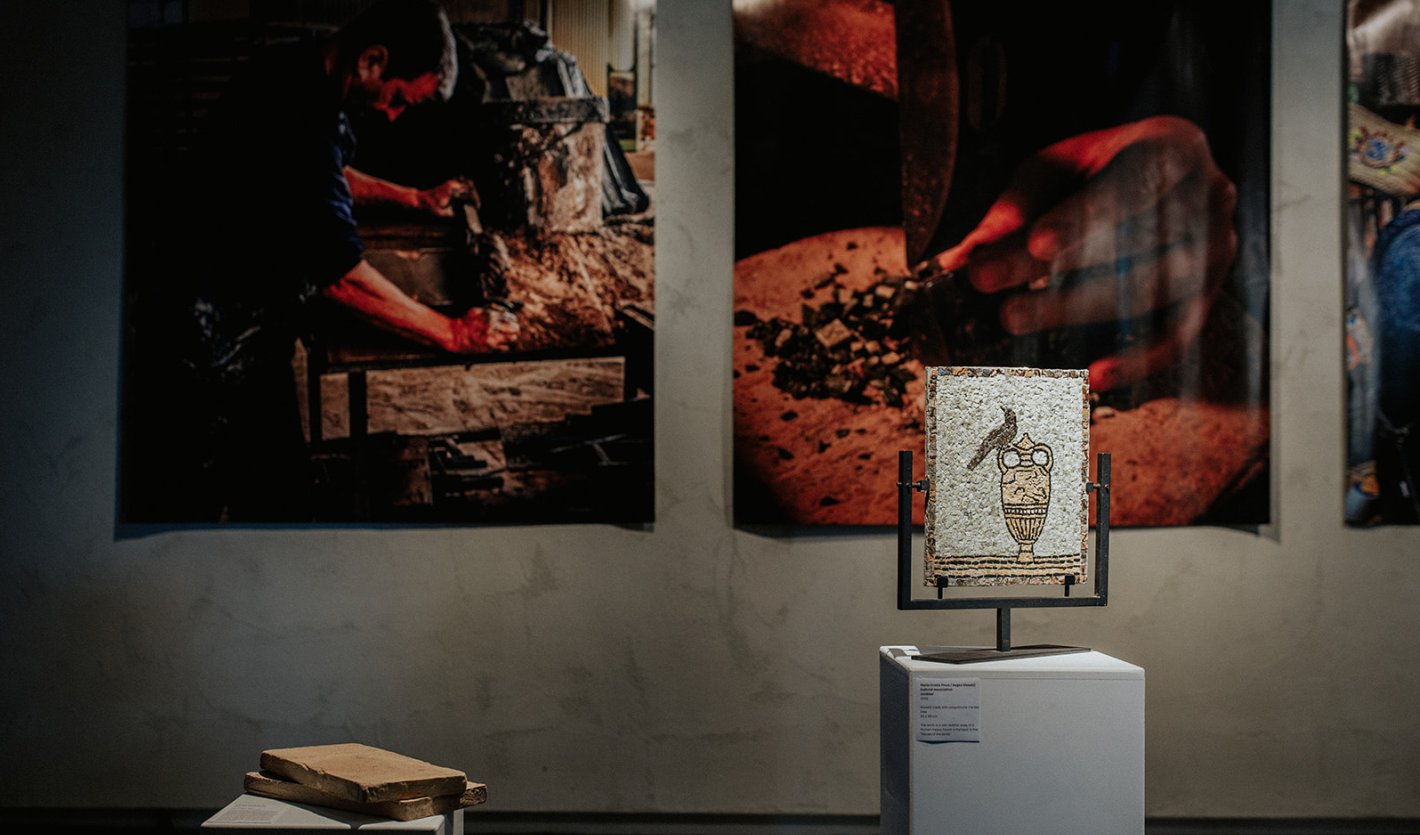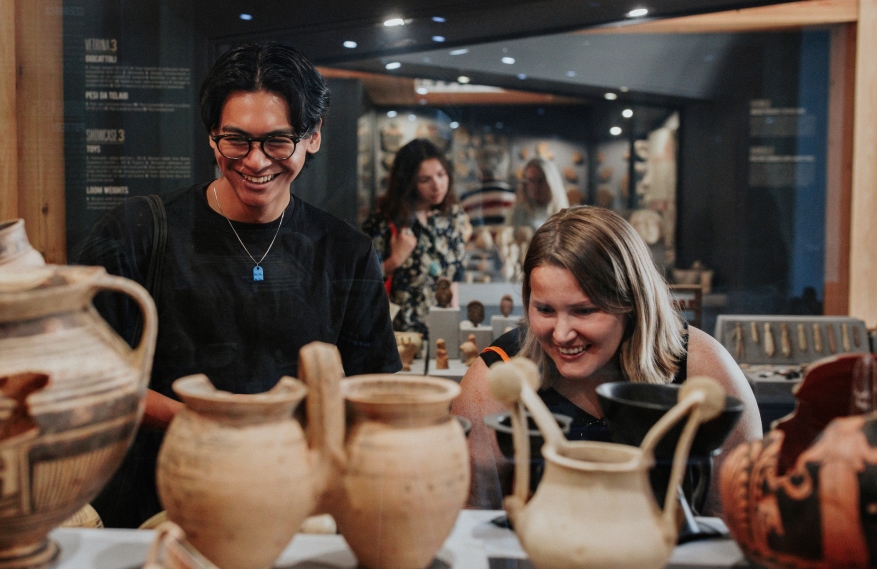
The Department of Art History offers BA and MA Programs in Art History designed to inspire and prepare the next generation of scholars and professionals.
The Programs share an engagement with art from antiquity to contemporary, informed by current methods and close faculty mentorship, with avenues for academic specialization, student research, and professional experience.
Our Rome location provides an art historically rich resource for our research-led courses led by an international faculty specialist in their fields, and it is integral to the first-hand academic experiences of our programs.
Whether you are new to Art History or already have experience, we have a Degree Program that is right for you.
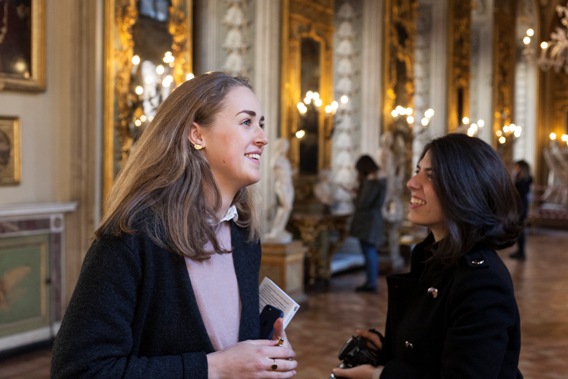 The research interests and professional experiences of our faculty inform all our lectures, and our interdisciplinary and discussion-based teaching directly involves students in contemporary academic discourses.
The research interests and professional experiences of our faculty inform all our lectures, and our interdisciplinary and discussion-based teaching directly involves students in contemporary academic discourses.
Our student body, too, is inclusive and collegial in approach: doing Art History at John Cabot University is to be part of an inspirational peer group. Students can join the award-winning, student-led Art History Society, which manages the professional 4m2 Gallery, or participate in the ArtSpeaks lecture series, which brings leading experts to campus.
Rome’s vibrant museums, galleries, excavations, and research academies are integral to the cultural networks and academic and professional experiences our students have access to: gallery and exhibition previews, studio and archaeological site visits, lectures at international research institutes, like the British School and the American Academy in Rome.
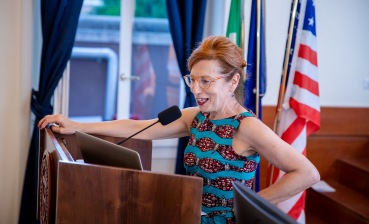
The Department’s ArtSpeaks lecture series brings distinguished academics, curators, artists, and cultural professionals to John Cabot University. ArtSpeaks is a chance to engage directly with individuals shaping the contemporary landscapes of art history, archaeology, and curation.
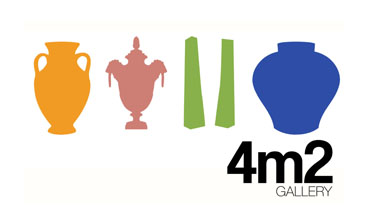
The student-led Art History Society is a space where social and intellectual life come together within our department. The Society manages the professional 4m2 Gallery on campus and organizes vernissages, private viewings, and workshops as well as visits and collaborative events that encourage art historical inquiry and life-long friendships.
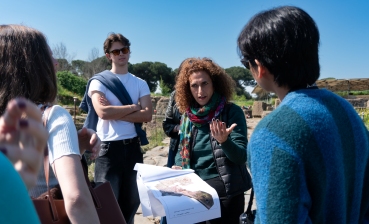
Studying in Rome means having unparalleled access to collections, research institutions, archives, and archaeological excavations. This allows students to study and research the primary material directly, as well as to be inspired by international scholars and artists presenting their work in Rome.
The richness and rigor of our academic programs, together with their focus on student research, means that our graduates are accepted to top universities in the world. We are immensely proud of our strong track record for BA and MA alumni going into graduate programs or field-related careers within 18 months of graduating.
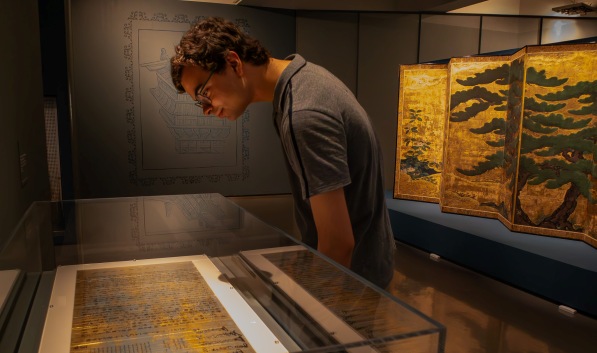
Art History skills are among the most sought-after in the current labor market:
Creative, incisive thinking: with the rise of AI, complex analysis, innovative approaches, and contextual solution-based inquiry are required more than ever.
World-centric skills: Interdisciplinarity and empathetic adaptability are vital skills for art, and for effective management, intercultural approaches, and leadership roles.
Powers of expression: Critical thinking, visual literacy, and effective verbal expression are vital in all sectors: education, media, politics, culture.
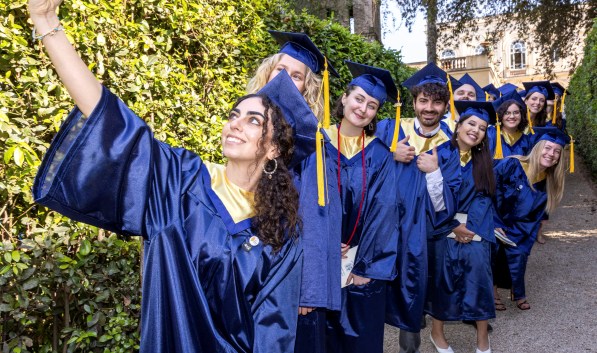
The vibrant network of your Art History community is lifelong and worldwide. The Department of Art History has created a dedicated platform within the JCU Alumni Network that allows our alumni to stay in touch with us and with each other.
Importantly, it offers access both to a worldwide network of professional advice and information and the opportunity for alumni to act as mentors for the next generation of exceptional art historians.
